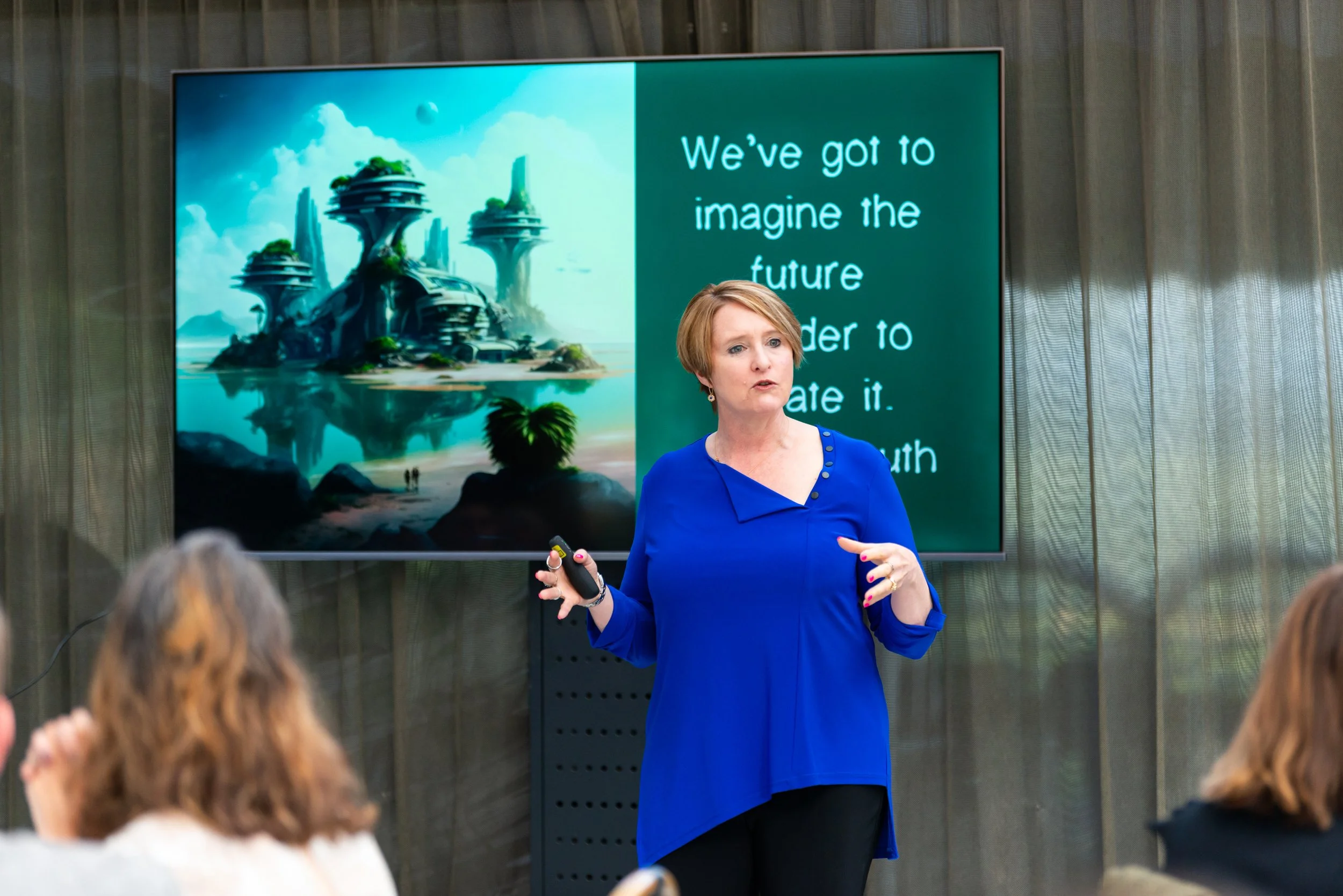Designing for development is a critical leadership skill. If we design our social and physical environments properly, we can evolve as humans and societies, keeping important leadership frameworks in mind. Here’s a fun way to do that.
Leadership principle: The environment causes evolution, so design it carefully
Animals show us how we can evolve by adapting to our environment. Polar bears have white hollow fur in a double layer to protect against cold and camouflage them in the snow. Meerkats have dark fur around their eyes to reduce glare from the sun to see long distances. Tigers have stripes to help them camouflage in the jungle.
Some clever animals design their environment to support them. In Canada, I have pulled many a canoe over a beaver dam. Beavers make dams by chopping down (rather, chewing down) trees to stem the flow of the creek or river, and thus to catch fish.
Humans are the biggest deliberate creators of their own environment. We have commanded much of the planet’s resources to suit our own needs. Not always with a great result, mind you.
We need to evolve as a species to solve the problems we’ve created. Paradoxically, we can design our environments to stimulate our development. Here’s how.
Our environment needs new leadership skills and abilities if we are to contend with the complexity and volatility we’ve created. To help us evolve quickly, we can design environments that stimulate our thinking and our leadership ability.
Leadership principle: Engineer your success
1. Physical Space
When it comes to environmental design, this is the most obvious one. Everything in our physical world has a message. Marie Kondo told us to assess everything through the, “Does it spark joy?” lens. I would add, “Does it cause me to think and feel differently?” “Does it challenge my default?”
Some examples are: my list of 1 year, 10 year, and 100 year goals. These keep me focused on what’s most important. Art that is challenging or unusual does something similar. Photos of the planet from space also remind me to think globally.
2. Social Space
Who we hang around is critical to our emotional well-being. Our most intimate relationships should be put through the “do I feel happy and loved around them?” lens. We can also choose people who challenge what is possible. I recently caught up with colleagues in Melbourne, Colin Ellis and Jaquie Scammel. Both these people are dedicated professionals with big visions and absolute conviction in service to their clients. Their energy was infectious and uplifting! When stretching our own possibilities, we can be elevated by other people’s success.
Choose people who challenge you to stretch.
3. Thinking Space
This space has two concepts to it: space to think, and what fills your thinking space.
Space to think: our brain needs time to process all the stimulation it receives in our fast, blinking, instant world. We need to add natural landscapes and no screen time to our daily experience. We need to let our brain rest and give it time to process all the gigabytes of data. It needs to make connections and consolidate memories. Giving the brain a rest from consuming things is crucial here.
What fills our thinking space: read widely, especially from people who disagree with you. It’s one of the best ways to develop perspective.
Reduce the rubbish. There’s plenty on offer in social media and news feeds to stimulate our dopamine-addicted brain. Steer clear of that, or at least put some strong boundaries around it.
When we upgrade our environments, we can’t help but think and feel differently. This is how we cause our deliberate evolution. So let’s get intentional; be, think, and do bigger and better by designing environments that demand it of us.
***
Related articles on leadership frameworks:
Design powerful experiences for a Boundless Team
Why experience at work is critical for your business results
***
About the author, Canberra leadership expert Zoë Routh:
Zoë Routh is one of Australia’s leading experts on people stuff - the stuff that gets in our way of producing results, and the stuff that lights us up. She works with the growers, makers, builders to make people stuff fun and practical.
Zoë is the author of four books: Composure - How centered leaders make the biggest impact, Moments - Leadership when it matters most, Loyalty - Stop unwanted staff turnover, boost engagement, and build lifelong advocates, and People Stuff - Beyond Personalities: An advanced handbook for leadership. People Stuff was awarded Book of the Year 2020 by the Smart WFM Australian Business Book Awards.
Zoë is also the producer of The Zoë Routh Leadership Podcast.

